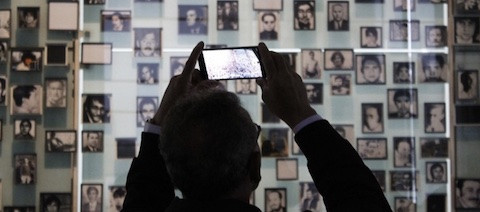
GCED Basic Search Form
Quick Search
当前位置
新闻

How can education address violent and conflict pasts in a democratic society? How can we promote a culture of peace and human rights that avoids mass atrocities like those that have occurred in the world and on our continent and ensure that they never happen again?
These are some of the questions that will be addressed during the international seminar “Teaching about the Holocaust and Genocides in Latin America and the Caribbean” organized by the Regional Bureau for Education in Latin America and the Caribbean (OREALC/UNESCO Santiago), which is taking place over the course of five sessions between August and November this year (see schedule).
“Teaching about the Holocaust and genocide is part of UNESCO’s efforts to promote Global Citizenship Education (GCED), a priority of the 2030 Education Agenda. This allows us to support the efforts of people involved in education to help students to become critical thinkers, active global citizens and responsible individuals who value human dignity and respect for everyone,” said Mary Guinn Delaney, Head of the Transformative Education Section at OREALC/UNESCO Santiago.
The seminar offers an overview of opportunities that can emerge from teaching in diverse cultural contexts in which education can prevent this type of situation from the past and promote knowledge, capacities, values and attitudes that foster prevention of violence with regard to certain groups of people in today’s societies.
The Holocaust is one of the most well-documented historical events in the world, and exploring this history through education can make people aware of the situations that can lead to a risk of genocide in the world today. It can also highlight the importance of human rights and universal values in the context of diversity of cultural expressions as the basis for peaceful coexistence and mutual understanding.
The seminar programme features renowned specialists from museums and memory sites, policymakers and teacher trainers. Its target audience is teachers, education professionals and members of the general public. Participants who attend the entire seminar will receive a certificate and the content will be broadcast on the Zoom platform and the OREALC/UNESCO Santiago YouTube channel.
This is a five-session event that is designed to contribute to the development of a conscious, respectful global citizenship that promotes human rights and cultural diversity as the basis for peaceful coexistence and mutual understanding.
- UNESCO’s work on education about the Holocaust and genocide
URL:
